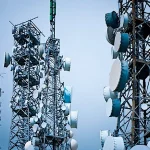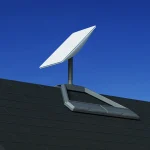Elon Musk’s Starlink Outperforms Nigerian ISPs with a Median Download Speed of 110.8 Mbps in Q1 2023
Fresh data from Ookla indicates that many Starlink users were pleased with the satellite internet access provider in Q1 of 2023 despite the complaints about its price, immobility, and instability,...

Fresh data from Ookla indicates that many Starlink users were pleased with the satellite internet access provider in Q1 of 2023 despite the complaints about its price, immobility, and instability, especially when it rains.
Although relatively new to the African and Southeast Asian markets, more people have switched from traditional internet service providers (ISPs) to Starlink because the latter offers high internet speeds and low network latency.
Ookla relied on Starlink’s net promoter score (NPS) and some fixed broadband providers like Viasat and HughesNet from user feedback in both metropolitan and nonmetropolitan areas. The research covered customers in North America, South America, the Caribbean, Nigeria, and The Philippines.
The report asked users to state “how likely they are to recommend their provider to friends or family on a 0 to 10 scale.”
Ookla’s research methodology involved organizing the NPS ratings into three categories – Detractors (0-6), Passives (7-8), and Promoters (9-10). It then multiplied the numbers by 100. When an NPS score is above 0, it means the provider’s users are highly loyal.
Starlink performed better than its rivals
Starlink emerged as the fastest satellite provider in mainland North America, South America, and the Caribbean. Like how Tesla proves to be a formidable foe in the global automotive industry, Starlink is killing the satellite internet game. In the United States, The SpaceX product in both metro (31.94) and non-metro (42.21) locations had a better outing than other ISPs combined (21.62 for metro and -21.27 for non-metro).

Ookla says, “Starlink provides a much-loved option for more rural, nonmetro users who often don’t have many good — if any — internet options.” This is hard to dispute because Starlink wants to reach underserved and remote areas with fast and low-latency internet connections. Even as customers are satisfied with the service delivery, Starlink may offer faster internet speeds following last month’s launch of 46 next-gen satellites to space.
The satellite internet company also shows great promise in new markets like the Philippines and Nigeria. Findings from Speedtest Intelligence show that The Philippines and Nigeria recorded median download speeds of 61.75 Mbps and 110.8 Mbps. Both speeds dwarfed the offerings of every fixed broadband provider combined.

Read also: How to get Elon Musk’s Starlink internet from Nigeria in 2023
The Starlink experience in Nigeria so far
Starlink’s satellite internet service in Nigeria officially went live this January. Upon launch in the West African nation, it announced Barter and PayDay as channels for interested subscribers to request the hardware.
Recall that many commercial banks have restricted spending on their intentional debit cards to $20, making it virtually impossible to get Starlink via that means.

Even with the price tag that first stood at $600 (around N400,000) for hardware and $43 ( around N42,000) for monthly subscriptions, PayDay revealed that it had finalized purchases worth $300,000 for the company this February. Starlink now costs N268,584 (one-time) and N19,260 monthly.
The Ookla report says that the median download speed for Starlink in Nigeria is 61.75 Mbps, which is a faster option than all other fixed broadband providers combined. It also had slower upload speeds in all of the new countries except Nigeria, which was too close to call at 11.17 Mbps to 10.70 Mbps.
The Space X product had a much higher latency than fixed broadband providers in the Philippines (162 ms) in Q1 2023, though it came very close in Nigeria 57 ms to 46 ms.
After a few months of use, users in Nigeria have mixed opinions on the experience so far. On Twitter, Tola Fadugbagbe – a cryptocurrency enthusiast – posted about streaming a football match uninterrupted using the satellite network provider. He says, “Don’t believe the lies you were told, it’s the best ISP anywhere available in Nigeria.”
However, several reports from some Nigerian users claim that the internet service is not worth the high price. This is mainly due to the poor internet service whenever it rains. Opening pages and downloading files is often slow and frustrating during a downpour.

Starlink thrives on the premise of offering unbeatable internet speed. It’s expected that the company fulfils that promise in all seasons, especially for a country seeking a change from legacy ISPs like MTN and Glo.

Recall that Starlink is a satellite-based broadband internet service which requires signals transmitted via radio waves. These waves travel best through open air and can get deflected or dispersed when they pass through water, buildings, and heavy foliage.
Despite a strong outing since its January 2023 debut, the Musk-led company can do better. It can start by improving its service delivery to guarantee high internet speeds always. When this happens, customer satisfaction levels should rise, and more Nigerians will likely switch.










No Comment! Be the first one.